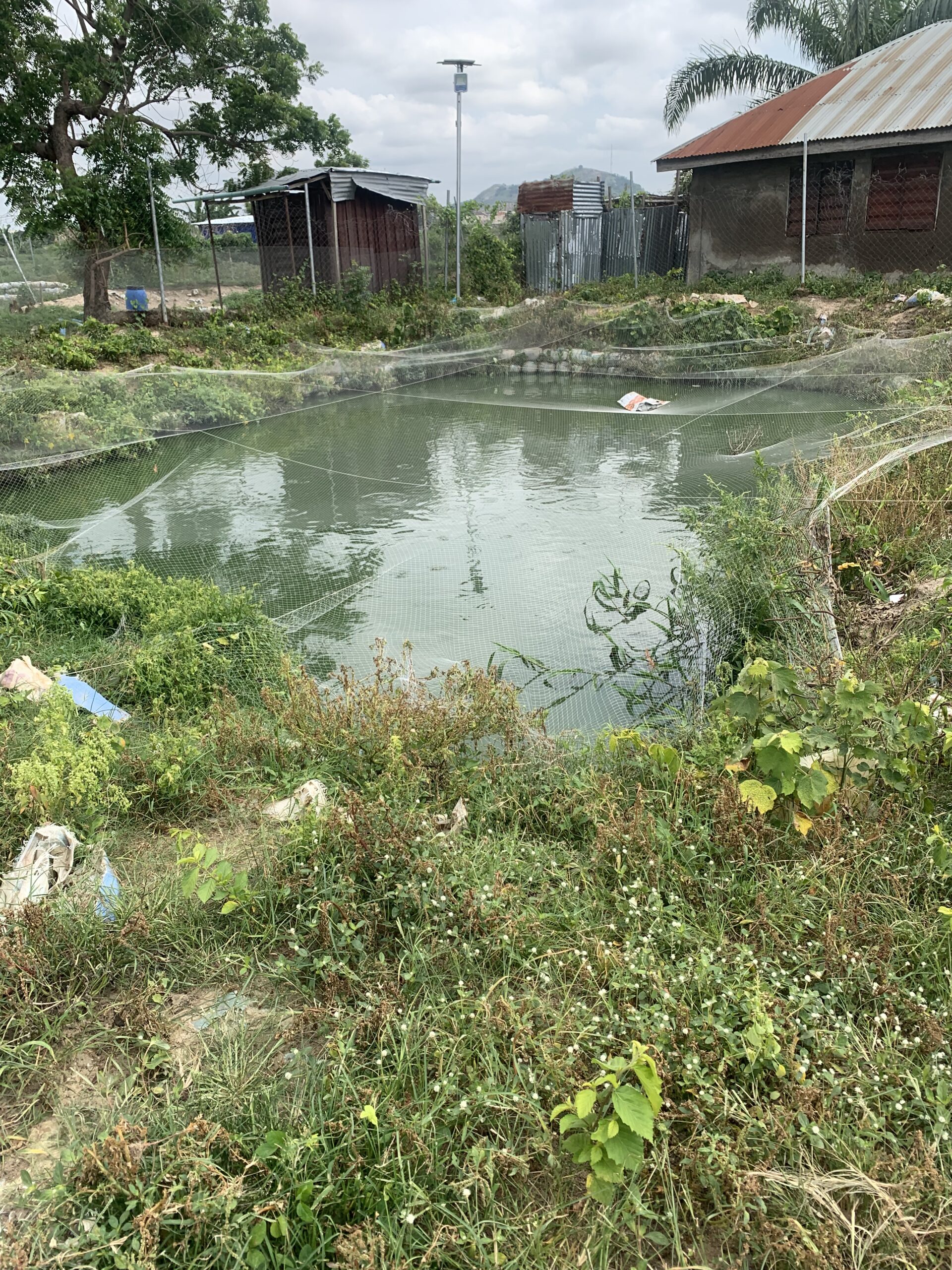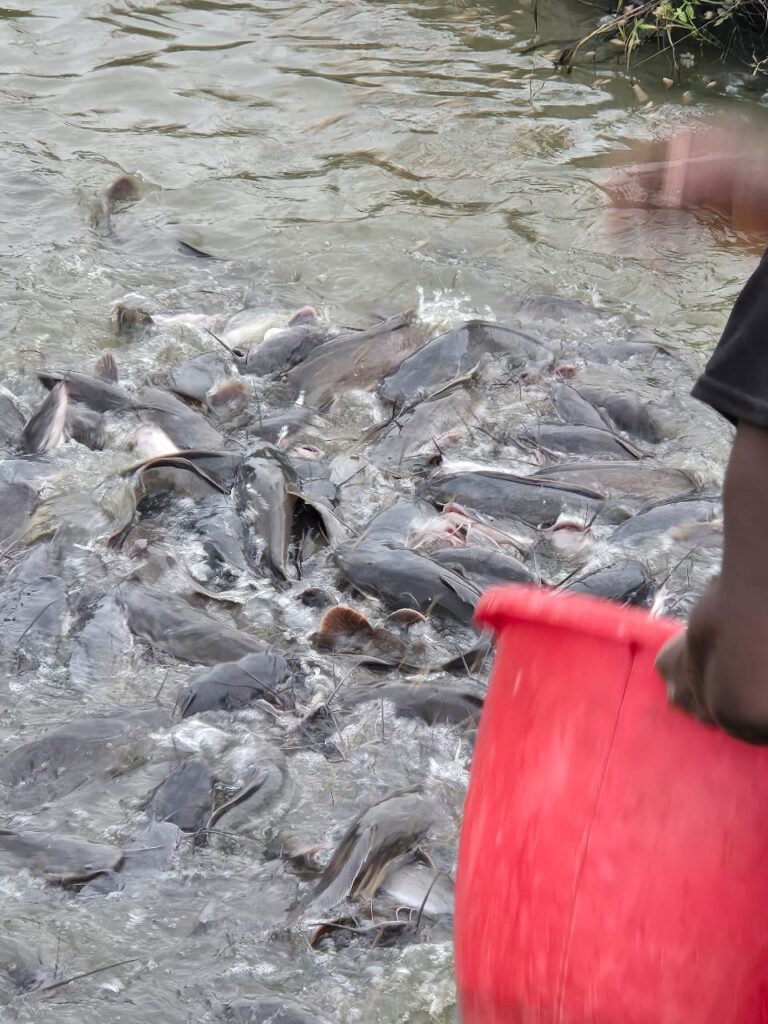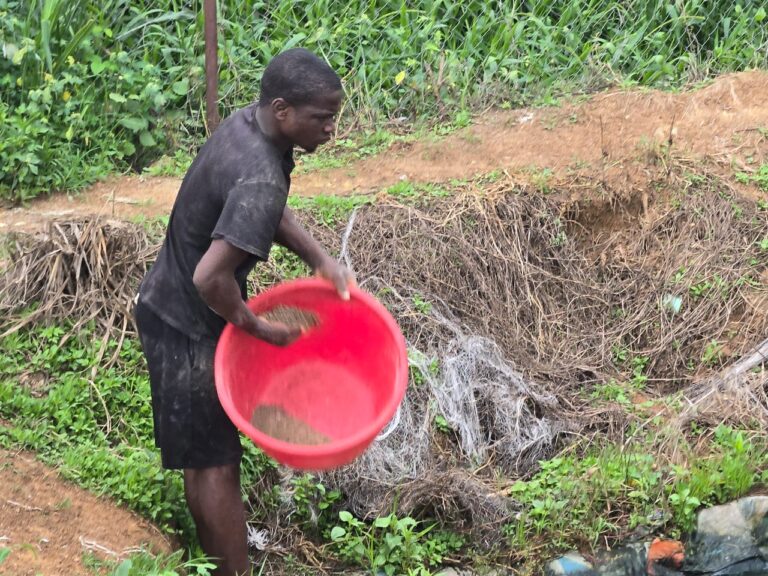In today’s competitive agricultural landscape, farmers are constantly looking for ways to maximise profit while making efficient use of resources. One proven method is integrated farming, where multiple complementary farming activities are combined. Fish farming, when paired with crop cultivation, is a powerful combination that: Can reduce feed and fertiliser waste Can help maximise land …
In today’s competitive agricultural landscape, farmers are constantly looking for ways to maximise profit while making efficient use of resources. One proven method is integrated farming, where multiple complementary farming activities are combined.
Fish farming, when paired with crop cultivation, is a powerful combination that:
-
Can reduce feed and fertiliser waste
-
Can help maximise land use
-
Will improves soil fertility
-
Will increases the overall farm income
In this post, we’ll explore 5 profitable crops that pair well with fish farming, especially in Nigeria and other tropical regions.
1. Leafy Vegetables (Ugu, Spinach, Amaranth, etc.)
Leafy greens like ugu (fluted pumpkin), soko (African spinach), and tete (amaranth) thrive on nutrient-rich pond water. These vegetables grow fast and have high local demand, making them ideal for daily harvest and cash flow.
Profit Potential
Ugu can be harvested within 3–4 weeks of planting. On just one plot of land (around 465 sqm), farmers can earn ₦50,000–₦100,000 monthly if properly managed.
Tips
Always use drip irrigation from pond water or apply fish waste compost for better growth.
2. Maize (Corn)
Corn grows well near ponds where the soil retains moisture and nutrients from fish activity. It can also be used in your fish feed formulation or as poultry feed if you’re running a diversified farm.
Profit Potential
Depending on your location, an acre of maize can yield between ₦150,000 and ₦300,000 in a good season.
Tip
Make sure you plant maize on pond embankments or unused land near the pond to make use of space efficiently.
3. Cucumber
Cucumbers grow fast and can benefit greatly from aquaponic systems or nutrient-rich soil. They can be harvested within 35–45 days and have a strong market presence in urban and semi-urban areas.
Profit Potential
With proper care, a ¼-acre cucumber farm can generate between ₦200,000 and ₦400,000 in a single harvest cycle.
Tip
Always use trellising to save space and keep cucumbers off the ground, which promotes better yield and improved fruit quality.
4. Tomatoes and Peppers
These are essential household staples with consistent demand all year round. Tomato and pepper crops benefit from fish wastewater when used carefully, especially in off-season planting using irrigation.
Profit Potential
A well-managed tomato farm can earn over ₦500,000 per acre during off-season periods when prices rise.
Tip
Make sure you use raised beds or sacks near ponds to make use of pond water while keeping roots safe from excessive flooding.
5. Cassava or Sweet Potatoes
These root crops are relatively hardy and thrive on lands enriched by composted fish waste. Cassava can be intercropped with vegetables in the first few months for dual harvest benefits.
Profit Potential
Cassava can yield up to 10–15 tonnes per hectare, with returns of ₦300,000–₦600,000 depending on market price and variety.
Tip
Leave cassava in the soil longer for better starch buildup, especially if it’s grown for industrial use or export.
Integrating an Aquaponics System
Aquaponics is the future of sustainable farming. In this system:
-
Fish waste fertilises the plants
-
Plants filter and purify the water
-
The water is returned to the fish tank
Benefits of Aquaponics
-
No need for chemical fertilisers.
-
Faster plant growth
-
Low water usage (closed-loop system)
-
Space-efficient (ideal for urban farming)
Advantages of Crop-Fish Integration
| Benefit | Description |
|---|---|
| Increased Income | Dual revenue from fish and crops |
| Efficient Resource Use | Water, feed, and manure are reused |
| Better Soil Health | Fish waste enriches the soil |
| Environmentally Friendly | Reduces chemical use and runoff |
| Suitable for Small-Scale Farmers | No large land is needed |
Conclusion
If you run a fish farming business and are looking forward to expanding your revenue stream, adding crops is a smart move. Crops like ugu, maize, cucumber, tomato, and cassava not only complement your fish farm but can turn unused spaces into profitable zones.
Start small, learn as you go, and reinvest profits to scale. With good management, crop-fish integration can turn your farm into a thriving agribusiness.






